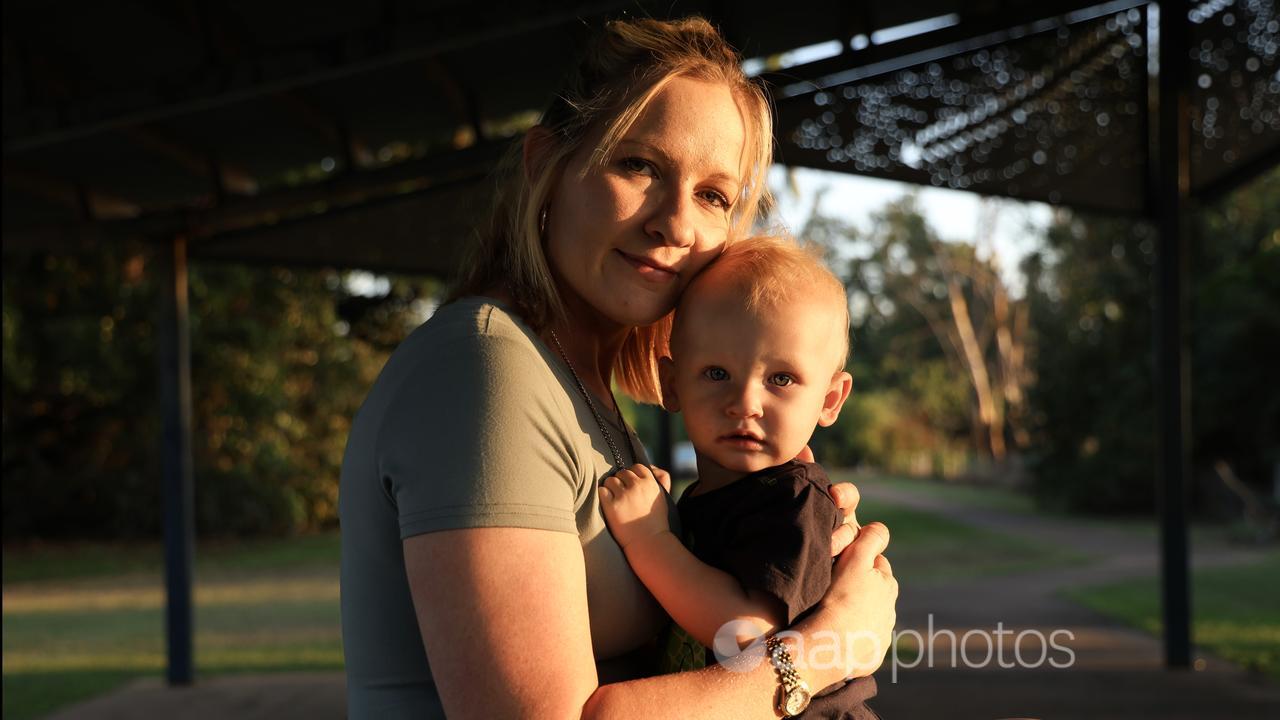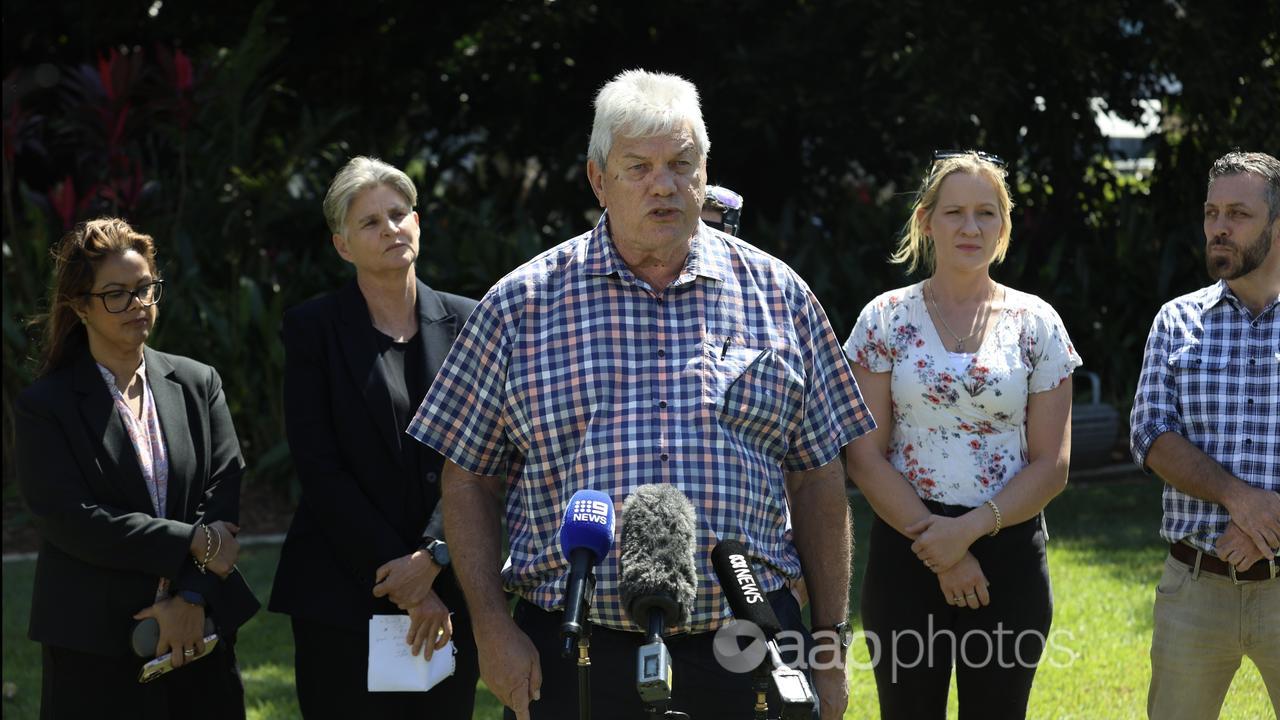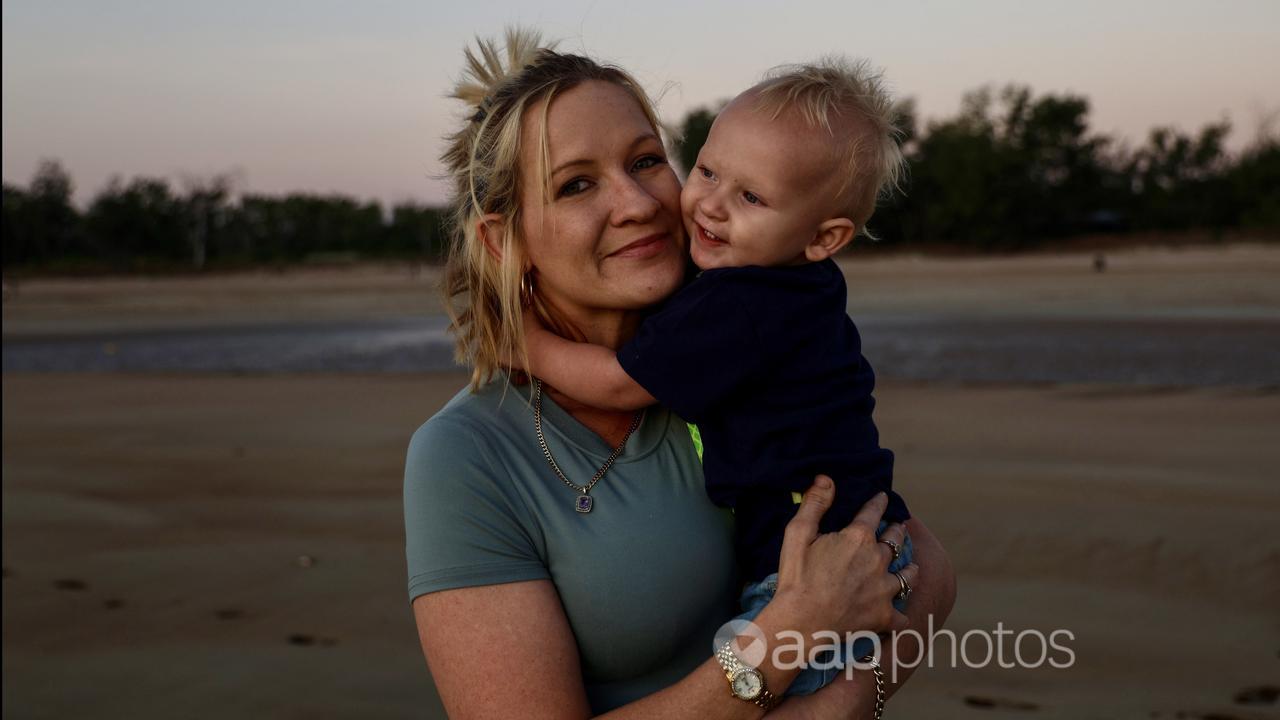In May 2023, Crystal Roberts appeared from prison on a video link in Darwin Supreme Court.
Her eyes averted from the camera, she looked down and softly stroked her pregnant belly.
She was one of up to the 50 per cent of people at Darwin Correctional Centre still on remand, meaning she had not been convicted of a crime.

Awaiting trial and nine-months’ pregnant, she applied to be moved to a specialist mothers and baby unit.
However, she was denied because the jail was using the unit for overflow as prison numbers soared to record highs.
Instead, Territory Families were planning to remove her newborn on Mother’s Day.
Justice advocates rallied together to raise funds for an urgent bail hearing, however, it was denied.
At 40 weeks and two days’ pregnant, Ms Roberts went into labour thinking she might never keep her child.
“I had been told I could go pick some baby clothes from the unit a couple of days before he was born, but I wasn’t told why,” she told AAP.
Behind the scenes, the Office of the Children’s Commission, Corrections and Territory Families waded through red tape.
Eventually, Ms Roberts was allowed to keep her baby for nine months in prison.
She says the reprieve allowed her to reform her life.
“That changed everything for me. If (they had taken him away), I wouldn’t be standing here now. I’d still be in prison … because that just takes all the hope away from someone,” she said.
“But being able to keep him was a new outlook on life.”
Ms Roberts has joined with representatives from Aboriginal Peak Organisations NT, the NT Council of Social Services, the Justice Reform Initiative, Human Rights Law Centre and Smarter Justice Campaigns to call on politicians to reduce incarceration rates.
The NT jails one per cent of its population at any time, with up to four per cent having been in contact with the justice system.
Nearly all young people in detention are Aboriginal, and up to 80 per cent of adults in NT prisons are First Nations people.

Aboriginal Peak Organisation NT chairman John Paterson said he was sick of being promised change only to still be calling for the same things year after year.
“We want solutions. We want to reduce the incarceration rates of our mob that are in prisons,” he said.
“We are operating and working on draconian policies, outdated, ancient policies that aren’t relevant anymore.”
The newly aligned justice group has penned an open letter calling for political parties to fully implement the Aboriginal Justice Agreement, which in 2022 was signed in bipartisanship in a bid to reduce Indigenous incarceration.
It is also asking parties to commit to reducing the number of Aboriginal children in out-of-home care and custody, and to invest in prison programs.
Ms Roberts said while she was behind bars there was little to no support, and upon release she and her son had nowhere to go.
“Throwing people in jail is not working,” she said.
“I went into rehab when I got out but that wasn’t anything that was organised by the system. There’s no help in there and there’s no help when you get out.”
She said for prisoners to reform their lives, custodial settings need to provide motivation, education, support and opportunities.
“I would ask myself every day ‘why am I changing my life?’, and I only had to look at him to remember,” she said.
“But he wasn’t just motivation for me, he had 100 aunties in there too and he changed their lives, too.”

Lawyer Nick Espie from the Human Rights Law Centre said evidence showed co-designing a community policing model with Aboriginal people worked, as did alternative to custody programs.
“Working and developing relationships, working with community leaders and elders to support people coming into town … that is what works. That’s what is effective.”
NT voters are set to go to the polls on August 24.
Both the NT Labor government and the Country Liberal Party have said they will not sign onto the open letter and rejected the alliance’s demands.




















